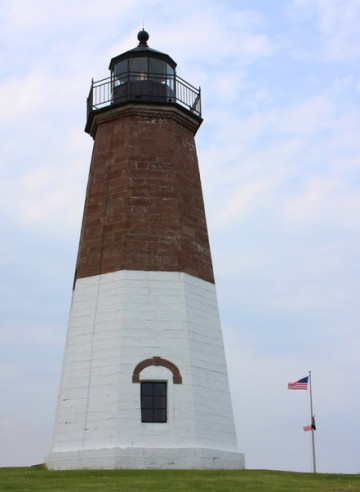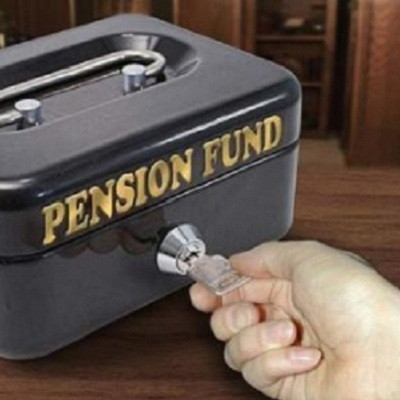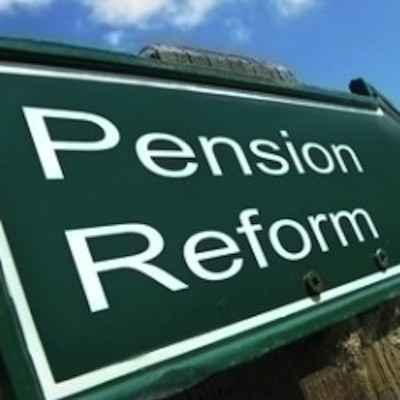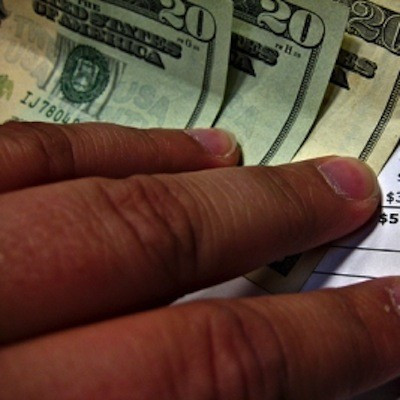Raimondo’s Former Firm Highest Paid by State
Thursday, March 26, 2015
Governor Gina Raimondo’s former investment firm Point Judith Capital was listed as having the highest level of fees among private equity firms in 2013 and 2014, while she was still serving as state treasurer, according to newly disclosed documents.
Those documents, made available by her successor, Seth Magaziner, show that Point Judith Capital was paid a 2.5 percent management fee, the highest rate in its asset class, among the fees that were disclosed. Point Judith was tied with just one other firm at that rate, Focus Ventures, an older California-based venture capital firm in which the state invested triple the amount that it did in Point Judith.
See below slides for the breakdown of the top 20 highest paid firms.
Point Judith’s rate is also higher than all the hedge funds for that year, save one, a fund with the D.E. Shaw Group.
GET THE LATEST BREAKING NEWS HERE -- SIGN UP FOR GOLOCAL FREE DAILY EBLASTPoint Judith’s fee is 25 percent higher than the firm’s own standard rates, as advertised in its pitch book, a document that was provided to the State Investment Commission in 2007 when Raimondo was a partner at the firm and Frank Caprio was treasurer. The book states that Point Judith’s standard fees are a 2 percent management fee and 20 percent performance fee on any capital gains.
Fee called more than ‘excessive’
“I find 2 and 20 to be excessive. Two and a half—it’s just a little more excessive,” said Marcia Reback, a member of the State Investment Commission and a former head of the Rhode Island Federation of Teachers and Health Professionals.
The disparity was also noted by Ted Siedle, a Forbes.com contributor who has criticized Raimondo in a series of online columns and a union-commissioned report in 2013. Asked for comment yesterday, Siedle cited his report, which described the fee as unusually high. “It appears that the 2.5 percent asset-based and 20 percent performance fees paid to Point Judith by ERSRI are significantly higher than the then venture capital industry standard of 2 percent asset-based and 20 percent performance fees,” the report stated.
Those assessments, however, were disputed yesterday by one of Raimondo’s former partners and a spokesman for a venture capital trade association, both of whom said that 2.5 percent management fee was not beyond the bounds of a normal rate.
Raimondo kept fee secret
Normal or not, Raimondo declined to release the fee rate when she was Treasurer.
In 2013, GoLocalProv requested the compensation rates and amounts for Point Judith. The treasurer’s office, then headed by Raimondo, released the total amount paid to the firm—which then totaled $579,424—but not the rate at which the management fee was paid, citing that information as proprietary under the state public records law.
But her successor, Magaziner, published a list of all fees paid to private equity firms and hedge funds for fiscal years 2014 and 2013 when he came into office.
A spokeswoman said the publication was consistent with Magaziner’s commitment to more transparency. “A new design of the Treasury Web site launched on January 6, the first day of Treasurer Magaziner’s term. We are glad this new responsive design has made the information more accessible. Treasurer Magaziner is committed to the highest levels of transparency,” said Shana Autiello.
Fees and payments to 18 private equity firms, representing $301.8 million of state pension investments in private equity—about a fourth of the total—was still withheld from disclosure. In this case, the treasurer’s office cited confidentiality clauses, presumably in the written agreements between the state and those firms.
The State Investment Commission, which the treasurer chairs, decided to invest in Point Judith Capital in late 2007, when Frank Caprio was in office. After Raimondo was elected treasurer she relinquished her positions in the firm that she co-founded and moved her shares in the firm’s investments into a blind trust, according to annual filings with the State Ethics Commission.
As of 2012, Raimondo still listed the trust and disclosed capital gains income between $201,000 and $500,000, more than her salary as treasurer. But after her stake in Point Judith became the subject of public scrutiny in 2013—thanks to a series of GoLocalProv investigation and a forensic report by Forbes.com critic Ted Siedle—the blind trust and capital gains earnings no longer appear on Raimondo’s latest ethics filings, which were submitted in April 2014.
A spokeswoman for Raimondo did not request to a series of questions yesterday, including whether Raimondo had divested herself of any of her remaining ownership stake in Point Judith.
Why was Raimondo’s firm highest paid?
Explanations vary for why Raimondo’s firm was paid a 2.5 percent management fee.
John Taylor, the head of research at the National Venture Capital Association, a trade organization, said that sometimes small firms charge fees at a higher rate to cover fixed costs. A 2.5 percent management fee is not unusual and would be appropriate in those cases, he said.
Siedle challenged that idea, saying the opposite makes more sense: that new firms with few assets under management would want to draw new clients with deals on lower fees. In 2007, Point Judith had six years of experience and $15 million under management. The state added $5 million to the pool.
At the time, Siedle speculates that it was the firm’s relationship with the Tudor Investment Corporation, a multi-billion investment firm that has assets in private equity and hedge funds, that helped land an investment from the state pension fund. In its presentation to the State Investment Commission, Point Judith representatives described the firm as an investor and a partner.
Reback, who was a member of the commission at the time, said the treasurer’s office had also adopted a policy of supporting local firms and businesses. Point Judith was founded in Rhode Island and was located in the state. But within a year of Raimondo taking office, the firm relocated to Boston. Reback was unsure if there was any connection between the invest-local policy and the fee paid to Point Judith.
The management fee does not appear to be tied in any way to performance. Performance fees are, after all, paid out separately. In 2013 and 2014, Point Judith was not paid any performance fees, an indication that there are as yet no net capital gains from the state’s investment.
When asked why the firm was among the highest paid by the state, one of Raimondo’s former partners responded by saying that 2.5 percent was only its initial rate.
“The Point Judith fees started at 2.5 percent during the investment period and have reduced over time, resulting in a 2 percent average over the life of the fund. As you can see by dividing the $71,496 in fees paid by the $5 million investment, the management fees were 1.4 percent in 2014,” said Sean Marsh, a co-founder at Point Judith who is currently a general partner at the firm. (Autiello confirmed that Point Judith’s fee should average out at 2 percent.)
“So, the 1.4 percent fee in 2014 is in line with all of the other managers and the 2 percent average over the life of the fund is 2 percent as was stated in the presentation you reference,” Marsh concluded in an e-mail. (But the same pattern appears to hold true for all the firms listed. The displayed rates appear to be initial fees which then decreased over the course of the investment, according to a footnote at the bottom of the document. That would mean that the document provides an apples-to-apples comparison of the initial rates of all firms.)
Hedge fund controversy
In his 2013 forensic report on the state pension system, Siedle pointed to Raimondo’s background and ongoing financial stake in Point Judith as symptomatic of a broader problem: a shift of approximately $1 billion in pension fund investments to high-fee, low-performing hedge funds. While Point Judith was a venture capital firm, Siedle noted that Tudor, an investor in and partner with Point Judith, included hedge funds among its assets.
“Two years ago, Rhode Island’s state pension fund fell victim to a Wall Street coup. It happened when Gina Raimondo, a venture capital manager with an uncertain investment track record of only a few years—a principal in a firm that had been hired by the state to manage a paltry $5 million in pension assets—got herself elected as the General Treasurer of the State of Rhode Island with the financial backing of out-of-state hedge fund managers,” Siedle wrote.
“In short, the foxes (money managers) had taken over management of the henhouse (the pension),” Siedle added.
Much of Siedle’s report was a broadside against the prudence of investing public pension money in hedge funds. The lack of transparency and high fees were among the chief concerns aired in that report—both issues that have also resurfaced in connection with Point Judith Capital.
While the Treasurer’s office at the time dismissed Siedle’s report as politically motivated, hedge funds are coming under increasing scrutiny. Most recently, Fitch Ratings issued a finding earlier this week warning that hedge funds “pose systemic risk.”
“Private funds, i.e. hedge funds, pose the greatest systemic risk for the investment management sector based on key risk indicators identified by the Financial Stability Board’s (FSB) latest consultation paper, according to Fitch Ratings,” the agency said.
Related Slideshow: RI Pension System’s Highest Paid Investment Firms
Below are the highest paid investment firms by the state pension system. Two types are listed: hedge funds and private equity firms. Firms are listed in order of least to highest rate of pay. Firms at the same rate of pay are ordered according to the amount of the payment they received, from least to greatest. For each firm, the name, type, management and performance fee rates, and the amounts paid for each are shown, along with the total. In instances where a firm had more than one fund, information is provided for each individual fund. Data are from a newly published online report of investment expenses for the state pension system. Note that the Treasurer’s office has declined to disclose information for 18 private equity firms due to confidentiality clauses.
Related Articles
- PODCAST: Point Judith Made More than Providence on Pension Fund
- NEW: Fung Blasts Raimondo on Point Judith Ties to Providence Contracts
- Point Judith Made More than Providence on Pension Fund
- Raimondo’s Point Judith Ties to Providence Contracts Come Under Scrutiny
- LISTEN- State Pension Fund Pays $570,000 to Raimondo’s Former Firm













2013.png)



















2013_80_80_c1.png)













